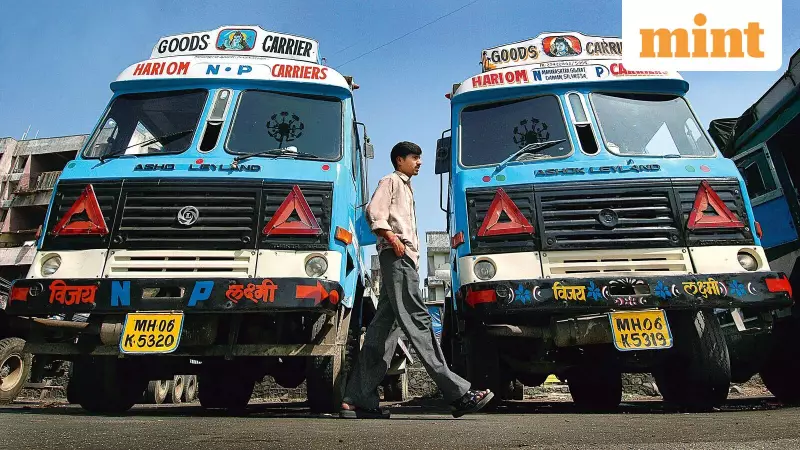
Ashok Leyland's Electric Vehicle Business Achieves Milestone Profit
In a significant development for India's electric vehicle sector, Ashok Leyland's EV subsidiary Switch Mobility has reported its first-ever profit during the July-September quarter of financial year 2025-26. The achievement makes Switch Mobility only the second electric vehicle manufacturer in India to reach profitability, following Olectra Greentech's success in the same space.
Cost Optimization Drives Profitability
Chief Financial Officer K.M. Balaji revealed during an earnings call that the electric vehicle arm managed to turn profitable in Q2 FY26, though specific profit numbers and EBITDA margins were not disclosed. The company's strategic approach to manufacturing played a crucial role in this achievement.
Unlike competitors who established separate greenfield facilities for electric vehicles, Ashok Leyland adopted an integrated approach. The company manufactures gliders - vehicle bodies without batteries, motors, or software - which are then transferred to Switch Mobility for completion. This methodology has resulted in substantial cost savings according to company management.
Another significant factor contributing to profitability was the decision to shutter the UK manufacturing plant earlier this year. The production base for European markets has been strategically shifted to the United Arab Emirates, further optimizing operational costs.
Strong Financial Performance Amid Market Challenges
The EV unit's profitability contributed to Ashok Leyland's overall strong financial performance. The company reported a 7% year-on-year growth in profit after tax, reaching ₹820 crore, while revenue increased by 13% to ₹12,577 crore for the July-September quarter.
Mitul Shah, automobile analyst at DAM Capital Advisors, highlighted that growth in non-vehicular segments such as spares, service, and defense outpaced core vehicular growth, supporting the company's robust performance. The EV unit turning profitable means it's no longer a drag on overall profitability, with better revenue expected in the traditionally stronger second half for commercial vehicles.
Despite these positive results, Ashok Leyland's shares fell 2.62% on Wednesday, underperforming the Nifty Auto index which rose 1.24%.
Future Growth Prospects and Investments
Managing Director and CEO Shenu Agarwal expressed optimism about future opportunities, noting that Switch Mobility maintains a healthy order book and plans to participate in more tenders. The upcoming Convergence Energy Services Ltd tender for 10,900 electric buses with a November 14 deadline presents a significant opportunity.
Ashok Leyland has committed ₹5,000 crore to establish a battery pack and cell manufacturing facility, with potential for investments to reach ₹10,000 crore. The plant location is expected to be finalized within 30-60 days, with operations likely to commence in the first half of calendar year 2027.
The manufacturing facility will be implemented in phases, beginning with battery pack assembly and progressing to cell production within two years after phase one completion. The plant will primarily supply Switch Mobility before expanding to serve battery storage and other automotive firms.
This development comes at a crucial time for the EV industry, which faces supply chain challenges including restrictions on rare earth magnets from China. Despite these headwinds, Ashok Leyland's EV unit has demonstrated that strategic cost management and integrated manufacturing can drive profitability in India's evolving electric vehicle landscape.






